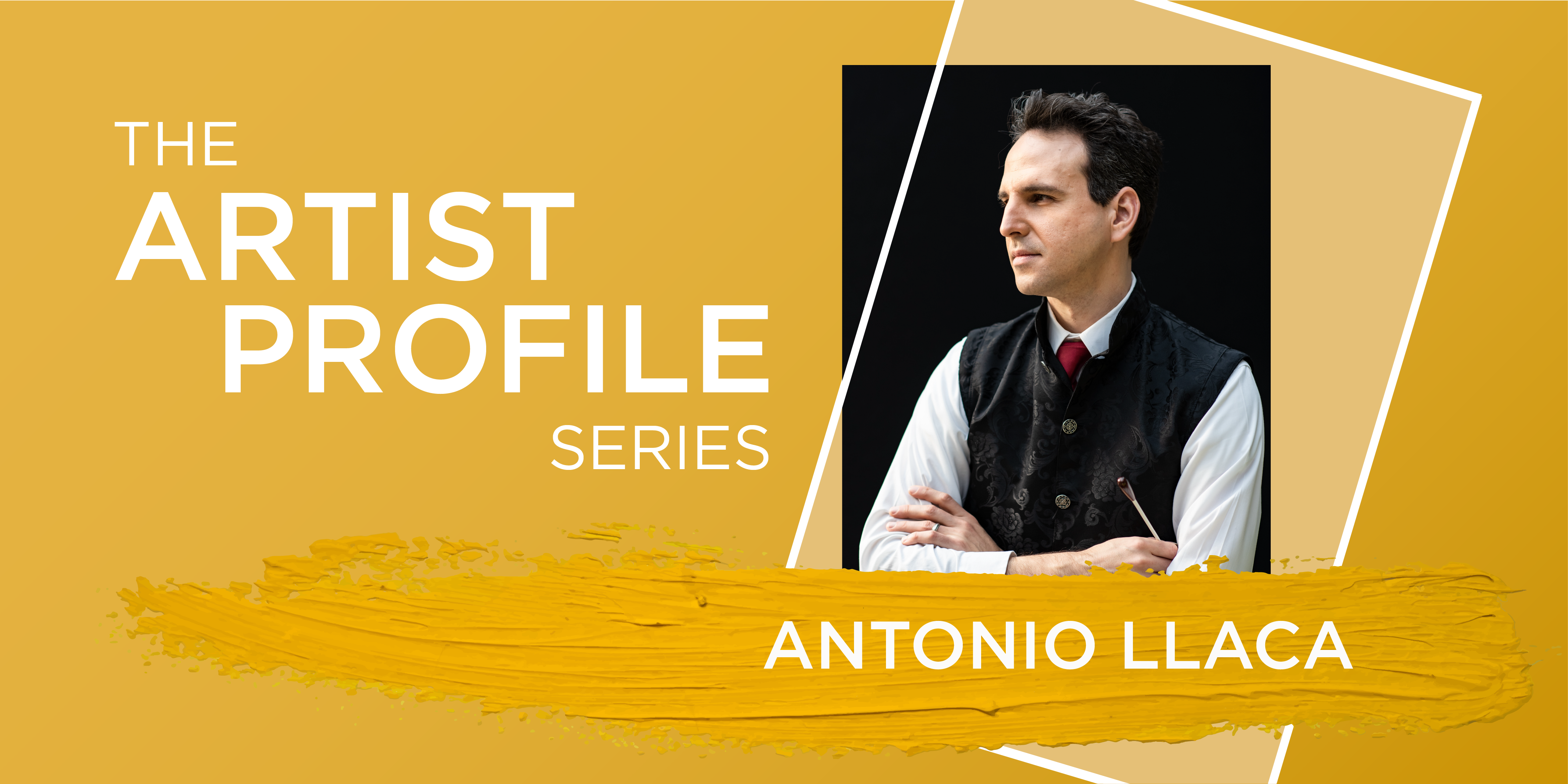The CDCC Artist Profile Series – Antonio Llaca

Antonio Llaca – Biography
Cuban born, Antonio Llaca is an active conductor, teacher, and clinician. He studied conducting and classical guitar both in Canada and in South America. Mr. Llaca holds a Master’s degree in Choral Conducting from Université de Sherbrooke (Montreal) and has studied with world renowned masters.
In 2019 Mr. Llaca was appointed Director of Choral Activities at Carleton University where he conducts the choirs and teaches choral and instrumental conducting. He is also a professor at the Conservatoire de Musique de Gatineau where he conducts the choirs and orchestra. Since 2009, Mr. Llaca has conducted Coro Vivo Ottawa (CVO). In addition to this, he often collaborates with numerous ensembles and prepares choruses for Canadian orchestras as well as touring international orchestras such as the China Broadcasting Chinese Orchestra. His choral ensembles have performed at the national and international stage including, the National Arts Centre, Canada, the Tintqiao Performing Arts Centre, China, and Carnegie Hall, USA.
Mr. Llaca is sought-after choral clinician, having had a chance to present workshops at various Canadian and international institutions and festivals including with the International Federation for Choral Music (IFCM) in Beijing 2018. As an instrumentalist, he is often called to perform at several festivals and instrumental ensembles across Canada including the National Arts Centre Orchestra in Ottawa and Montreal’s Orchestre Métropolitain.
Mr. Llaca has toured in Canada, Latin America and Asia with his ensembles. He has earned a reputation for being a passionate conductor and pedagogue who is regarded for his musicality and knowledge of the choral art.
The CDCC Artist Profile Series – Q&A
Q. What drew you to choral conducting?
A. Conducting is a beautiful and rewarding craft and what really drew me to it is the team work and spirit that is inherent to singing choral music. I started out as an instrumentalist, and after taking a choral conducting course during my undergraduate studies, I had this realization that this was what I wanted to pursue as my career. I have been so fortunate to have met incredible and inspiring mentors along the way, and have worked with talented singers!
Q. What do you like most about teaching and being the director for the CU Choir ensemble?
A. I very much enjoy the work I do with the students — their openness and dedication to choral music and the choral art. I have particularly loved the openness and desire to learn and improve that I see in the students, and in the community of singers in general.
Q. What was it like to rehearse and perform at Carleton Dominion-Chalmers Centre during its inaugural year?
A. It’s been a great experience, one that also coincides with my first year as Director of Choral Activities at Carleton. There was a sense of new beginnings with the choir being at CDCC. And we were so well supported by the CDCC staff; they are always willing to be flexible and to find solutions for the ensemble.
Q. What advice would you offer to someone trying to pursue a conducting career? What skills do you think are necessary to have as a conductor?
A. Beyond the musicianship skills you’d expect from a conductor, I believe generally speaking, choral conductors have to demonstrate vision and leadership. They have to know what their singers can achieve, what they want them to achieve, and then work to get them all there. Only then other skills come in to help with that including communication skills, because you want a conductor to be direct and precise during a rehearsal. Interpersonal skills, creativity, being supportive and committed to your craft – having that desire to demonstrate the beauty of music. I always tell my conducting students to know their ensembles well and to have a passion for teaching, after all the greatest part of our work as a conductor is precisely that: to teach and rehearse.
Q. How has your work been impacted during COVID-19?
A. Like many other choral musicians in Canada and around the world, COVID-19 has had a great impact on our activities. The vast majority of ensembles have had to find solutions to address the loss of performance opportunities. But this has also allowed us to think outside the box, and imagine new ways to carry on with our activities. While many ensembles won’t be able to rehearse in person this fall, I have discovered a whole new set of skills as a conductor to advance the musicianship of my singers during this pandemic, and I am most certainly looking forward to exploring those.
Q. How have you adjusted the work you do with you with choral ensembles and students in these extenuating times?
A. It has really been about being creative and devising solutions and techniques to fit on a mostly online environment. Several aspects of our craft have changed, but this has also opened the door to new possibilities and exciting opportunities as choral musicians.
Follow our #CDCCartistprofiles Twitter thread to track when new profiles are added each week this fall!
Click here to return to The CDCC Artist Profiles Series main page.